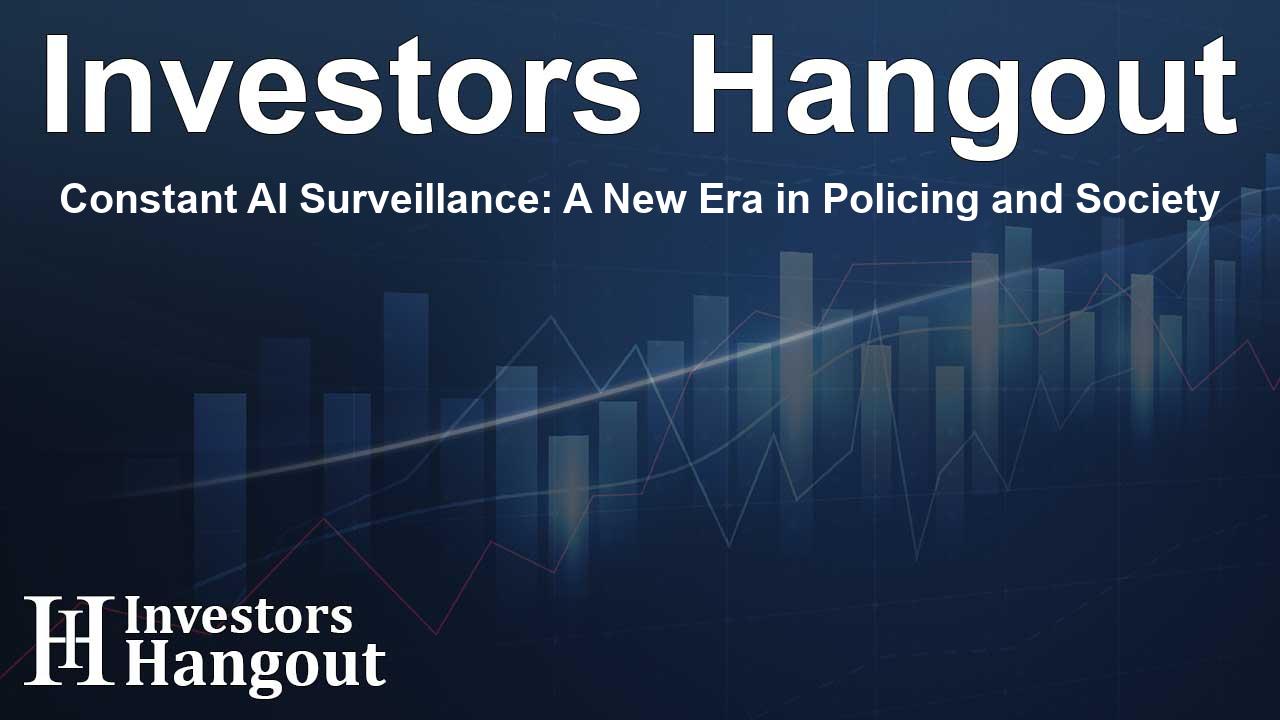Constant AI Surveillance: A New Era in Policing and Society

Revolutionizing Law Enforcement Through AI Surveillance
At a recent financial analysts meeting hosted by Oracle Corp., the company's co-founder and Chief Technology Officer, Larry Ellison, shared an intriguing vision for the future of law enforcement. Ellison suggested that artificial intelligence could eventually underpin an expansive network of surveillance systems for police officers, ensuring they are monitored at all times.
The Role of AI in Modern Policing
Ellison stated, "Every police officer is going to be supervised at all times. If there's an incident, AI will immediately report it to the appropriate authorities." This remark reflects a growing belief that advanced technology can enhance accountability and transparency within law enforcement.
Civic Behavior Under Surveillance
He further posited that citizens might modify their behavior when aware of constant surveillance. The implication is clear: continuous recording could lead to a significant drop in crime rates. This assertion, however, prompts a larger discussion regarding the ethical and social implications of such surveillance measures.
Challenges Ahead
Despite the potential benefits of AI-driven surveillance, its implementation is fraught with challenges. Reports have indicated that historical biases in police data in the U.S. may skew AI outcomes, suggesting an unbalanced picture of criminal activity in specific neighborhoods. This reinforces concerns about the ethical ramifications of using AI in law enforcement.
Shifting Dialogues on AI's Impact
The conversation surrounding AI's role in policing is echoed in discussions about its broader societal implications. Recently, the advancement of AI technologies has raised important questions about their influence across various sectors, including finance and employment.
AI Technology Advancements
For instance, OpenAI introduced its new ‘o1’ model, which significantly improves machine responses to complex queries compared to its predecessors. This innovation not only showcases the leap in AI capabilities but also raises questions regarding its practical applications in numerous fields, including law enforcement.
AI in the Workforce
Former Microsoft Corp. co-founder Bill Gates also contributed to the dialogue surrounding AI's implications for jobs. In a recent podcast alongside Sam Altman, CEO of OpenAI, Gates pondered AI's potential support of blue-collar occupations. Current findings illustrate that a significant number of companies have already transitioned to using AI, raising concerns about potential job losses as predicted layoffs loom ahead for many.
AI's Influence on Personal Finance
AI's impact extends beyond policing and workforce considerations, penetrating personal finance as well. Recent data indicates that nearly 40% of Americans are leveraging AI tools for financial planning, illustrating a shift in how individuals manage their finances. This trend suggests that AI may soon become a staple in both personal and professional finance strategies.
Looking Ahead
The overarching theme of AI's role in society is clear: while it holds promise for enhancing efficiency and accountability, there is a pressing need to address its ethical implications. As technology continually evolves, maintaining a dialogue on its integration into essential sectors like law enforcement will be vital to ensure benefits are realized without compromising individual rights.
Frequently Asked Questions
What is Larry Ellison's proposal regarding police supervision?
Larry Ellison suggests that AI could provide constant supervision of police officers to enhance accountability.
How might constant AI surveillance affect citizen behavior?
Ellison believes that knowing they are being constantly recorded may prompt citizens to behave better.
What concerns exist regarding AI in law enforcement?
Concerns include the potential for AI to perpetuate existing biases found in police data.
What recent advancements have been made in AI technology?
The launch of OpenAI's ‘o1’ model is a significant advancement, improving response times to complex questions.
How is AI being used in personal finance?
Recent surveys indicate that almost 40% of Americans now use AI tools for financial planning.
About Investors Hangout
Investors Hangout is a leading online stock forum for financial discussion and learning, offering a wide range of free tools and resources. It draws in traders of all levels, who exchange market knowledge, investigate trading tactics, and keep an eye on industry developments in real time. Featuring financial articles, stock message boards, quotes, charts, company profiles, and live news updates. Through cooperative learning and a wealth of informational resources, it helps users from novices creating their first portfolios to experts honing their techniques. Join Investors Hangout today: https://investorshangout.com/
Disclaimer: The content of this article is solely for general informational purposes only; it does not represent legal, financial, or investment advice. Investors Hangout does not offer financial advice; the author is not a licensed financial advisor. Consult a qualified advisor before making any financial or investment decisions based on this article. The author's interpretation of publicly available data shapes the opinions presented here; as a result, they should not be taken as advice to purchase, sell, or hold any securities mentioned or any other investments. The author does not guarantee the accuracy, completeness, or timeliness of any material, providing it "as is." Information and market conditions may change; past performance is not indicative of future outcomes. If any of the material offered here is inaccurate, please contact us for corrections.